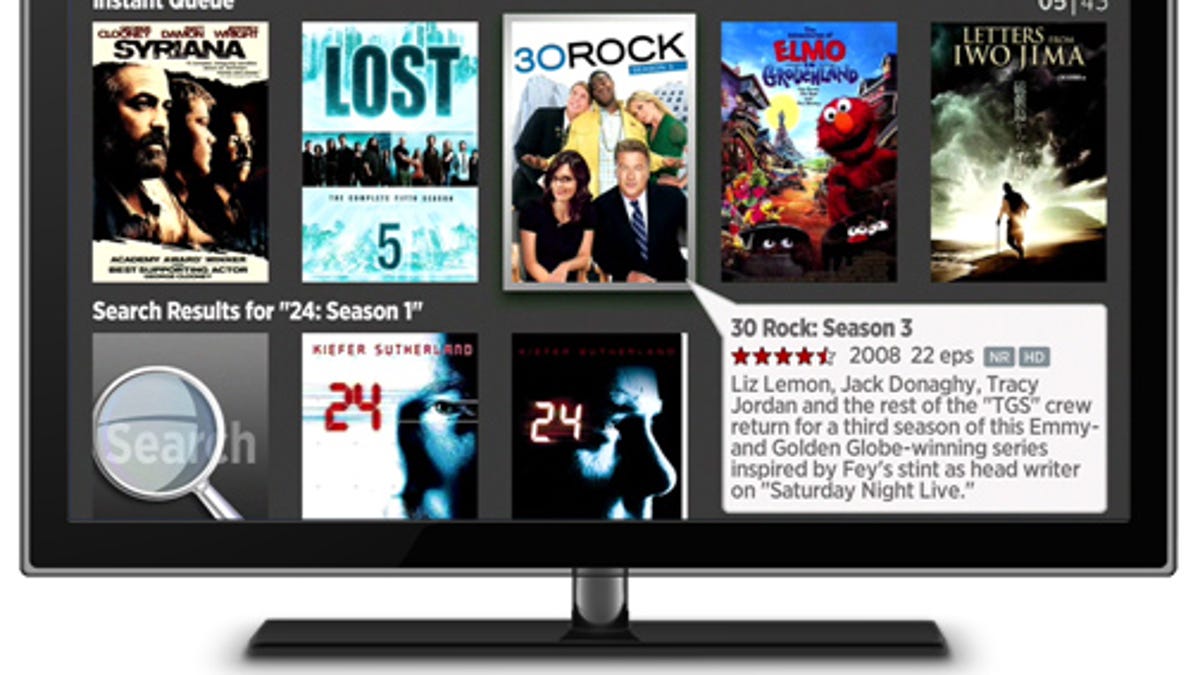Netflix is cable's 'frenemy'
The cable and entertainment industry have a love-hate relationship with Netflix and other online streaming services, as execs from some leading companies in the business discuss at the NCTA's Cable Show.

BOSTON -- Is Netflix a friend or foe to the traditional cable TV companies? Cox Communications CEO Patrick Esser says it's a "frenemy."
There's no question that Netflix and other over-the-top Internet-based video services have shaken things up for traditional TV distributors and content owners. But is Netflix destroying the cable industry's business model?
Cox's Esser acknowledged today during a panel discussion here at the National Cable and Telecommunications Association's Cable Show that there are times when Netflix may compete for an audience with cable TV providers. But as a broadband provider, he also said it was a very important service to his customers, and therefore it's important to him.
"In the month of March, 40 percent of our customers had streamed Netflix content," he said. "That tells me that it's a very important product to my customers. And if I want to live in the world of broadband access, I need to enable this to happen."
Indeed, cable operators not only deliver video services to customers, but they also provide high-speed Internet access. These networks are the platforms on which Netflix, Hulu, and other online video services are delivered. And even though the relationship between the two sets of companies has at times been contentious, there's also a reality that the companies and the industries themselves are dependent on each other.
Ted Sarandos, Netflix's chief content officer, said that Netflix is not trying to cannibalize the TV offerings that its broadband partners offer. But he admitted that people spend a lot of time streaming Netflix content, and as a result that time must be taken away from other activities.
Still, he said that Netflix can offer a value to its cable partners by helping them grow their audience. He used the popular AMC series "Mad Men" as an example. He said that between the long period between season 4 and season 5 of the series, millions of new viewers started watching the series for the first time on Netflix's streaming service. And because Netflix offered all four previous seasons, these viewers could "catch up" on the series before the Season 5 debut. Now, these new viewers are able to watch the current season of the show on AMC.
"We have helped bring a new audience to 'Mad Men'," he said. "There is an artful way to pick the right content at the right time with the right license fee so that we can be additive to cable."
Companies that create video content also say that Netflix has been a valuable partner. Chase Carey, chief operating officer for News Corp., said during the panel discussion that Netflix represents an opportunity for his company to extend its audience.
"We create content," he said. "And Netflix and the Net in general opens a broader audience for our content. There is some fragmentation. But the pie is getting larger."
He said viewers can choose how they access the content they want to see. And as his company and others make it this possible, the content actually gets more valuable.
Time Warner CEO Jeff Bewkes, who was the first to coin the term "TV everywhere," a concept in which TV providers offer video to subscribers on any device, said that it doesn't matter if people are watching his company's TV shows and movies on their big 60-inch TV screens or on a tablet.
"We don't care which screen people use," he said. "Whether it's a TV or a tablet, they're all TVs to us. And they can't get access to our programming unless they hook that screen up to some kind of service."
Indeed, the notion of how and when people view TV is becoming irrelevant. Conan O'Brien, who kicked off the morning session in a one-on-one interview with CNN's Piers Morgan, said that the way people watch TV has changed. The audience is much more engaged via social networks, which has helped grow audiences in a way that wasn't possible in the past.
"The days of 'I only want people to experience me at 11 o'clock, on TBS' -- those days are over," he said. "The audience is too fractured, they're too distracted."
But as much as the cable industry and entertainment moguls like to talk about TV everywhere and the power of putting their content on the Internet to grow audiences and influence viewership, the industry is still reluctant to let go too much.
"When the industry first started talking about TV everywhere, there was a real sense of urgency because they thought the house was on fire," said Craig Moffett, an equities analyst following the cable market. "They thought Netflix was a real threat. But now they realize it's not. And they've gone back to fighting about how much extra money they can squeeze out of a service."
Moffett said that he's seen companies pulling back on the content they make available to online TV services. And he expects that to continue in the future.
News Corp.'s Carey said the industry must resist this urge to pull back too far in an effort to protect old businesses.
"The biggest challenge for us (in the next five years) is to try to lead this change, without protecting our old businesses too much," he said.
Time Warner's Bewkes agreed.
"We have to let customers use the interfaces they want," he said. "We can't get hung up on what interfaces we want them to use. Silicon Valley is a global industry, we should harness that and make that our strength for distribution."

